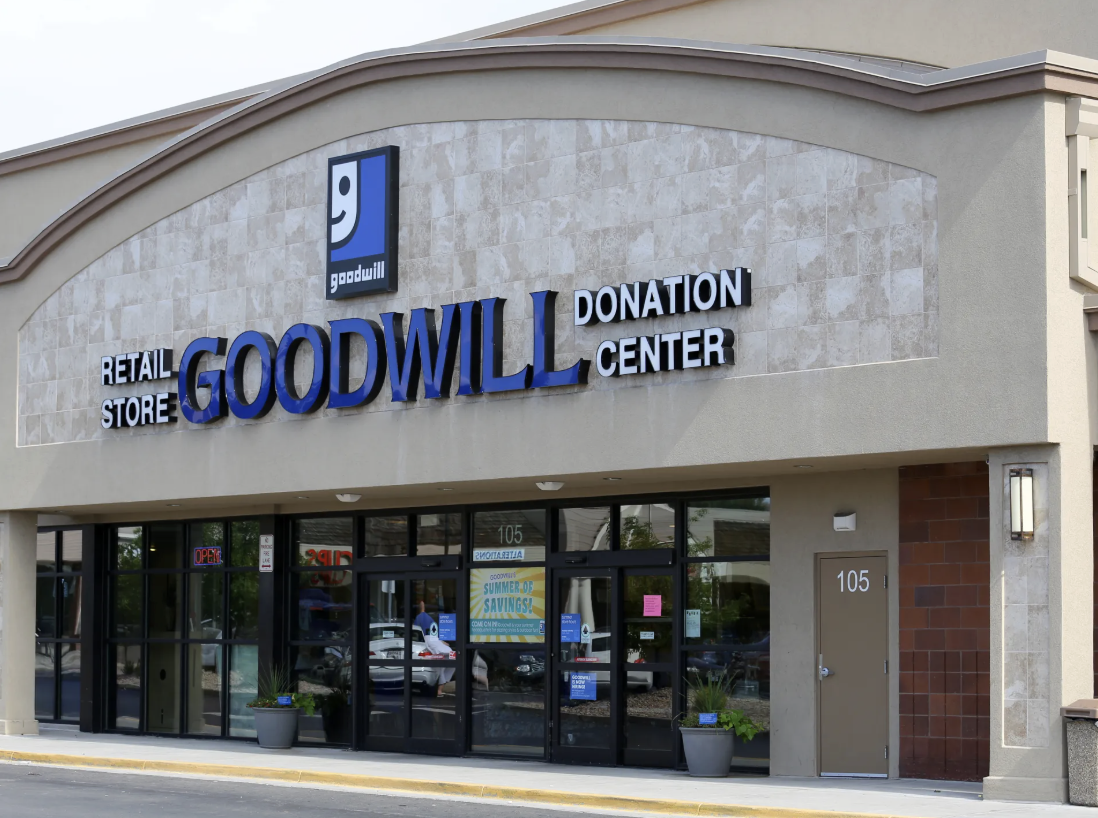
If you’ve ever cleaned out your closet and felt that little spark of satisfaction as you dropped a bag of gently used clothes at your local Goodwill, you’re not alone.
For generations, Goodwill has been woven into the fabric of American communities, offering a place to give, to find a bargain, and to support a mission that helps people get back on their feet.
But this fall, a long-standing symbol of that mission quietly shut its doors after serving residents for nearly 70 years.
The closure of the historic Morgan Memorial Goodwill Industries donation center marks the end of a chapter that many in the community never imagined would close.
A Farewell to a Neighborhood Fixture
Since 1958, the Arlington Goodwill Center has been more than just a drop-off point for unwanted sweaters and kitchen gadgets.
It’s been a hub of activity, a place where neighbors exchanged smiles, and a vital link in the chain of Goodwill’s mission to provide job training, employment, and support to those in need.
Last year alone, Arlington residents donated over two million pounds of goods—an astonishing testament to the generosity of the community.
But as of September 26, the center is no more. The closure, announced by Morgan Memorial Goodwill President and CEO Joanne Hilferty, marks the end of an era.
"Goodwill’s attended donation center has been a part of the fabric of Arlington for nearly 70 years. It is a resource for residents who want to support Goodwill while also reducing items going to the landfill."
Why Did the Center Close?
The reasons behind the closure are a mix of practical and financial realities. Earlier this year, the center was relocated from its longtime home at the Stop & Shop on Massachusetts Avenue to the Ed Burns Arena and Skating Rink. But even this move couldn’t stave off the inevitable.
Like many nonprofits and retailers, Goodwill has faced rising operational costs, changing donation patterns, and the challenge of keeping smaller locations financially sustainable.
This isn’t just an Arlington story. Across the country, Goodwill has been forced to shutter underperforming stores and donation centers, especially in high-cost areas like California’s Bay Area.
In 2024 alone, stores in Vacaville, Vallejo, Benicia, Hayward, and several San Francisco neighborhoods closed, along with regional headquarters and warehouses. The reason? Simply put, some locations just weren’t bringing in enough revenue to cover expenses.
Also read: This $40 thrift store find turned out to be worth over $2,000—here’s how it happened
What’s Next for Arlington—and Beyond?
The good news is that Goodwill isn’t giving up on Arlington. The organization is actively working with the town to find a new, permanent home for a donation center.
In the meantime, residents are encouraged to use the nearby attended donation center in Lexington, located in the parking lot of Grace Chapel at 59 Worthen Road (open daily from 8 am to 4 pm). There’s also a new center coming soon to the Elks Lodge in Winchester at 375 Cambridge Street.
This pattern—closing smaller, less sustainable locations while opening larger, more efficient ones—reflects a broader trend in retail and nonprofit operations.
"Our goal in the coming months and years is to open new locations in the Bay Area that are larger and financially more sustainable."
Also read: Smart thrifting after 60: The warning signs that could cost you more than money
How to Donate (and What NOT to Donate)
If you’re inspired to clear out your closets this fall, here’s a quick refresher on what Goodwill accepts—and what they don’t:
Goodwill Welcomes:
- Gently-used clothing and shoes
- Accessories (belts, handbags, hats, jewelry, scarves)
- Backpacks, bags, and luggage
- Cookware (bakeware, dishes, glassware, pots, pans)
- Small electronics (alarm clocks, coffee pots, toaster ovens)
- Home electronics (computers, laptops, stereo equipment, books, CDs, DVDs)
Please Don’t Donate:
- Ripped, dirty, or broken goods
- Car seats, playpens, or cribs
- Large furniture, mattresses, or bed frames
- Encyclopedias or textbooks
- Cassette tapes, VHS tapes, or TVs
- Exercise equipment, tires, cleaning supplies, paint, batteries, and hazardous materials
Remember, if you wouldn’t give it to a friend, it’s probably not right for Goodwill. Donating responsibly helps the organization save on disposal costs and ensures your items truly help others.
The Silver Lining: Community Resilience
While it’s sad to see a beloved center close, the story isn’t over. Communities like Arlington have always found ways to adapt, to support one another, and to keep the spirit of giving alive.
Whether it’s driving a few extra miles to the next donation center, organizing neighborhood swaps, or supporting Goodwill’s mission in new ways, the heart of the community endures.
And let’s not forget: Goodwill isn’t the only retailer evolving. Target is expanding across 21 states, and T.J. Maxx’s sister store is opening new locations. The retail world is changing, but opportunities for connection, savings, and service remain.
Read next:
- One ChatGPT thrift shopping secret could save retirees over $100 a month
- Finding value in unlikely places: Why more Americans are turning to dumpster diving amid rising costs
- The last piece of Disney magic from 1989 vanished overnight, leaving fans devastated
Have you been impacted by a local Goodwill closure? Do you have creative ways to donate, recycle, or support your community? What’s your favorite thrift store find? Share your stories, tips, and memories in the comments below.






